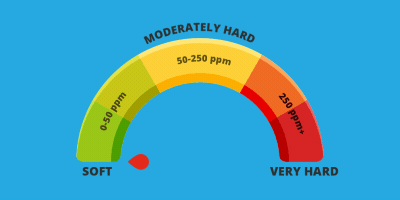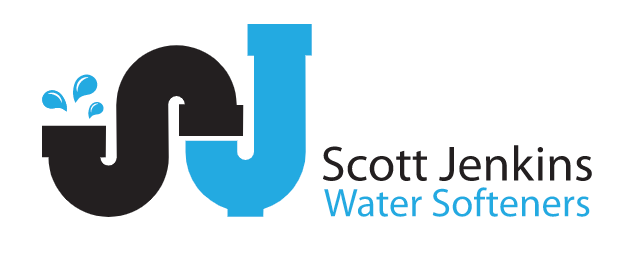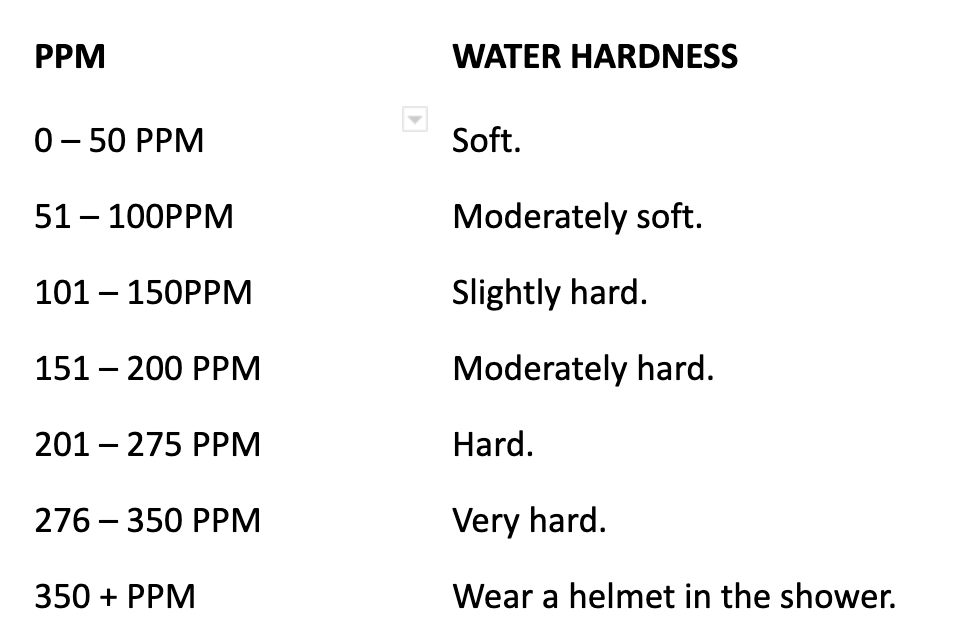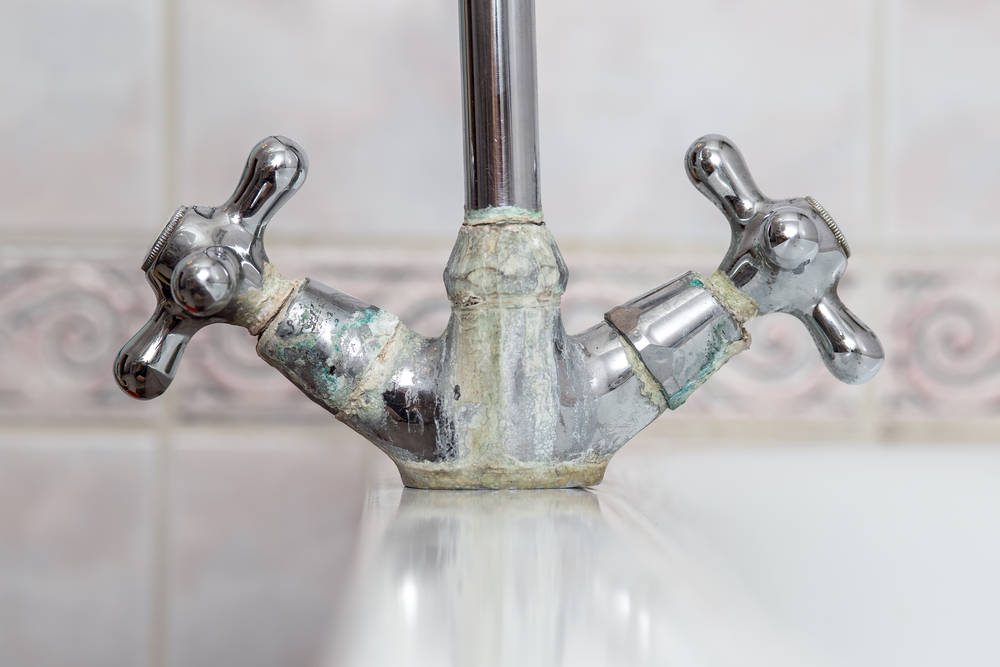How hard is the water in East Sussex?

If you live in East Sussex, you’ll find that the water is hard
East Sussex has been plagued with hard water ever since rain started falling from the sky! If that sounds a bit dramatic – it isn’t meant to be. It’s all down to geology, really. You see, water is soft when it rains but, when it comes into contact with the ground, it doesn’t stay that way! East Sussex is renowned for its clay and chalk soil, which is rich in minerals like magnesium and calcium. Once the rain drains into the soil, these minerals have the effect of turning the soft rainwater hard.
Although the water hardness levels for East Sussex vary from place to place, most parts of the county register water hardness readings of above 250ppm (parts per million). Any reading above 200ppm is considered hard.
If you don’t want to put up with constant hard water in your home, the most effective solution is to have a water softener installed. You wouldn’t be the first if you did! Soft water systems are hugely popular amongst East Sussex households. Incidentally, with a water softener fitted in your home, your water hardness reading will fall spectacularly- virtually to zero!
Mains Drinking Water and Sewerage Services
The mains water and sewerage services for East Sussex are mainly provided by Southern Water and South East Water.
Live in East Sussex? Find out the hardness levels in your area:
Here are the specific water hardness readings for the following East Sussex locations: Brighton
Why is hard water a problem?
There isn’t anything that’s inherently bad about hard water. Indeed, people often prefer to drink hard water, as opposed to soft water, so it does have its good points. BUT, for the majority of time, there are loads of reasons why you don’t want to be going anywhere near hard water if you can avoid it – and much of the issues are down to limescale.
You get limescale build-up once hard water molecules are agitated. This might sound technical but, basically, whenever you boil or heat water in household appliances, such as through the boiler that runs your central heating, as well as your dishwasher, washing machine or kettle, this is when these molecules get themselves in a right state! So, every time you cook, clean, wash and put on the heating, the effects of hard water will emerge.
How is water hardness measured?
Water hardness is measured in particles per million (PPM). The amount of hardness particles that are dissolved in the water are rated, as follows:
In East Sussex, the mains water supply is categorised as hard or very hard.
How can I reduce the water hardness in my home?
To overcome the downside of hard water, the most effective solution is to have a domestic or commercial water softener fitted, whether in your home or business premises. You may wish to leave your drinking water unsoftened to make it more palatable. If you would like a water softener but want hard water to drink from the tap – no problem! It is easy to filter out your drinking water supply from the remainder of your softened mains supply.
What is a water softener and how does it work?
The softener attaches directly to the mains water supply and works by flushing out the hard water particles. The process by which this is done is known as “ion exchange”. This removes the calcium and magnesium minerals which make the water hard in the first place. Our high-quality softeners are filled with food-grade resin beads that are dosed with sodium ions. As the water passes through the tanks in the softener, the resin beads attract and hold on to the magnesium and calcium minerals and “exchange” them for sodium ions. This is the process that makes the water soft, thus ridding your property of any threat from limescale build-up.
The regularity will depend on the amount of water you use, but your softener will need to “regenerate” to flush away the magnesium and calcium ions on the resin beads. This happens automatically. A metering system informs the water softener when to regenerate. All you need to do is to ensure that the soft water system is regularly topped up with salt, which all water softeners depend upon to assist with the regeneration process.
The benefits of soft water on your skin, hair and laundry
Skin, hair and laundry absolutely love soft water! It makes your skin and hair feel smoother and silkier, plus you’ll quickly notice that your soaps, shampoos and gels will all last that much longer.
And, from first-hand experience, we know that skin conditions, such as eczema and dermatitis, respond really well to regular soft water exposure.
Also, your laundry will be softer to the touch, sinks and shower screens stay cleaner for much longer and they won’t look stained. Your household appliances will also run much more efficiently. Plus, you won’t get through as much Cif or Mr Muscle because you won’t be facing a constant battle against hard water!
Will my water softener need to be serviced?
To be on the safe side, servicing always makes good sense – for a variety of reasons. Even though, our water softeners are well-built, known for their reliability and designed to last for many years, they work best when well maintained. For this reason, we would always recommend you take out one of our Annual Service Plans.
What does the SJ Water Softeners Annual Service Plan include?
This is a once-yearly health check to ensure your water softener is functioning optimally. We’ll check there are no leaks, that the resin is given a good clean – this is very important – and that everything is in order with the working parts, like the bypass valves. We’ll also check that the overflow is cleared of any blockages.
Being on our annual service plan won’t just prolong the life of your water softener – it will also save you any outlay on unexpected maintenance issues.
What’s more, you don’t need to be an existing SJ Water Softeners customer to benefit from an Annual Service Plan.
Other Annual Service Plan benefits – Warranties, Parts, Salt
- Save money on any parts that need replacing, such as filters – we’ll take £10 off the standard price of a replacement. Plus, we will give you a 10-year warranty on all parts – as opposed to the standard manufacturers’ warranty you’d otherwise receive.
- Reduced cost of salt supplies. When we do your yearly Health Check, we’ll stock you with sufficient salt to last until your next annual inspection – saving you money on bulk purchases and on delivery charges.
- Sign up for a plan and get a free faucet and filter (worth £120)
The whole Annual Service Plan Package costs just £65.00, inclusive of VAT.
East Sussex – an Overview
Annual rainfall: 32.8 inch or 833.5mm.
Wettest month – November 4.23inch or 107.4mm
The historic county of East Sussex in the South East of England on the English Channel coast borders West Sussex to the west, for a short distance Surrey to the north-west and Kent to the east.
Geologically, East Sussex is part of the southern anticline of the Weald, with the chalk hills of the South Downs running from west to east across the county. The sandstone and clay meet the sea at Hastings and the Downs at the famous attraction of Beachy Head. According to a 2014 study, the area contains significant reserves of shale oil in the Wealden basin, totalling an estimated 4.4 billion barrels.
The county’s Seven Sisters Park is part of the South Downs National Park. East Sussex also has many historic landmarks, including the castles at Bodiam, Herstmonceux, Lewes and Pevensey. Battle Abbey was built to commemorate the Battle of Hastings of 1066, whilst Bateman’s, Rudyard Kipling’ home, was an early example of Greek Revival architecture in Britain. East Sussex also includes two chalk hill figures on the Downs – the Litlington White Horse and the Long Man of Wilmington.
What’s the big issue with limescale?
If you constantly use hard water in your home, limescale will cause a whole range of problems, any one of which threatens to downgrade your household appliances and sting you in the pocket.
- Overall reduced efficiency of appliances
- Block valves, reduced diameter of pipework
- Potential for boiler breakdowns
- Increased gas and electricity bills
- Longer household cleaning times
- Poor appearance on surfaces like chrome, granite, glass, Perspex, etc
Hard water is a negative for skin, hair and laundry
Hard water can have a big impact on personal hygiene. Washing in it regularly dries out your skin. It can be especially bad for those suffering from skin conditions, like eczema. With frequent exposure to hard water, hair will look lifeless after shampooing, whilst laundry will lose its colour and softness and start to feel starchy. The more you clean, the worse the problem becomes.
The effects of hard water on skin, hair and laundry
Hard water is also a big issue for personal hygiene. It dries out your skin and can be especially bad for those suffering from skin conditions, like eczema psoriasis. Hair can look lank after shampooing and your laundry will lose its softness and feel starchy and lifeless, when frequently exposed to hard water. The more you clean, the worse the problem becomes.
Will I get savings on household bills from having a water softener?
Indeed, you will! After the initial outlay on your water softener, you’ll start seeing immediate savings on your household bills.
We have worked out these savings, based on the money an average family of four will see on shopping and energy bills, after a water softener has been fitted in the home. Assuming a two-bathroom property, the average reduction on general family toiletries and household cleaning products will be around 70%. Not bad going!
In this calculation, we’ve included items such as washing machine and kettle de-scalers, one-off purchases, as you wouldn’t need to buy these again after you’ve had a water softener installed. Even by taking out the costs of these sundry items, your monthly shopping bill for the above products would drop by around 65%, compared to what you would spend if you didn’t have a water softener.
A Water softener and Energy efficiency go together
Over the course of a year, the average East Sussex household that doesn’t have a water softener will experience a sharp reduction in energy efficiency. This is as a result of limescale build-up in the plumbing. Annually, depending on the amount of water hardness in the locality, it is likely that there will be a limescale accumulation of up to 1.5mm, which will reduce energy efficiency by as much as 12%. With every passing year, the reduction in energy efficiency will only increase – you’ll see it in your rising fuel bills.
By contrast, the fuel savings you could enjoy from having a water softener, plus the reduced capital depreciation on the appliances, could amount to £240 a year. Not just that – your boiler will have a much easier time of it and should easily last a full 15 years before you might need to start considering a replacement.
What does it cost to run a water softener?
Whilst most of the water softeners we fit don’t have many moving parts, are extremely reliable and highly unlikely to break down, there are associated servicing costs. For this reason, we would recommend that you have a cost-effective Annual Health Check.
Typically, the only on-going cost you would need to consider is for block salt. This will cost no more than £2 to £7 per person per month, depending on the capacity and amount of usage your water softener gets.
What is the best water softener for me?
Our market-leading selection of Kinetico and EcoWater water softeners are designed to suit all requirements and UK plumbing systems. We can discuss the best option for you, based on your budget and anticipated usage. Our ranges start from £1595 for the premium range.
The installation cost is £350 for all models connected to the most common 15-22ml pipework. For 28ml pipework, the price may go up to £450, although we’ll assess this when we visit. And there’s no need to do a site visit prior to installation – we can do both on the same day. The prices you see on the website are definitive and VAT inclusive.
If you aren’t sure which is the right softener for you, by answering these few short questions you’ll be on the right track. Or call us if you have any questions.


